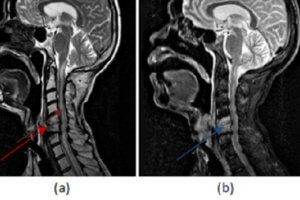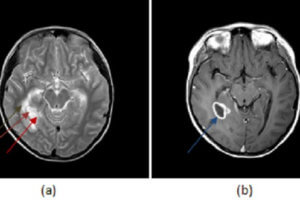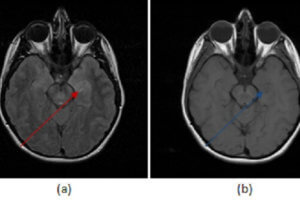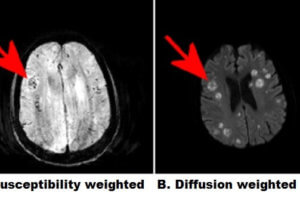Syphilis, a sexually transmitted infection caused by the spirochete Treponema pallidum has recently been re-emerging in the general population. Central nervous system involvement by this infection is referred to as neurosyphilis. Neurosyphilis... Read more »
There was a time when acute mastoiditis was the most common complication of otitis media (AOM). With the advent of antibiotics, this complication has become relatively rare. It is of interest that... Read more »
Lyme disease is caused by the spirochete, Borrelia burgdorferi. The complete syndrome is actually a manifestation of the infection and the body’s immune reaction to it. The pathogen is transmitted from host... Read more »

Epidural abscess is a rare condition affecting about 2 in 10,000 patients. Spinal infection typically starts in the disc (discitis), which is seeded through hematogenous dissemination of infection, typically staph aureus and... Read more »

Abscess is in the differential for a rim enhancing mass, an important one in neuroradiology and often remembered by the mnemonic MAGIC DR – metastasis, abscess, glioma, infarct, contusion, demyelination and radiation... Read more »

Herpes simplex virus type 1 (HSV-1) is a prevalent virus with an affinity for the nervous system. Reactivation of the virus within the brain parenchyma either directly or through retrograde spread along... Read more »
Herpes zoster oticus, or Ramsay Hunt Syndrome, is a polyneuropathy secondary to reactivation of latent varicella zoster virus in and around the ear. Read more »

There is an extensive differential for multifocal T2/FlAIR hyperintense lesions in the brain parenchyma including neoplasm (metastasis, lymphoma), infection (abscess, septic emboli), infarct (vasculitis), trauma (diffuse axonal injury) and demyelinating disease (multiple... Read more »

 Brain and spinal cord infections.
Brain and spinal cord infections.